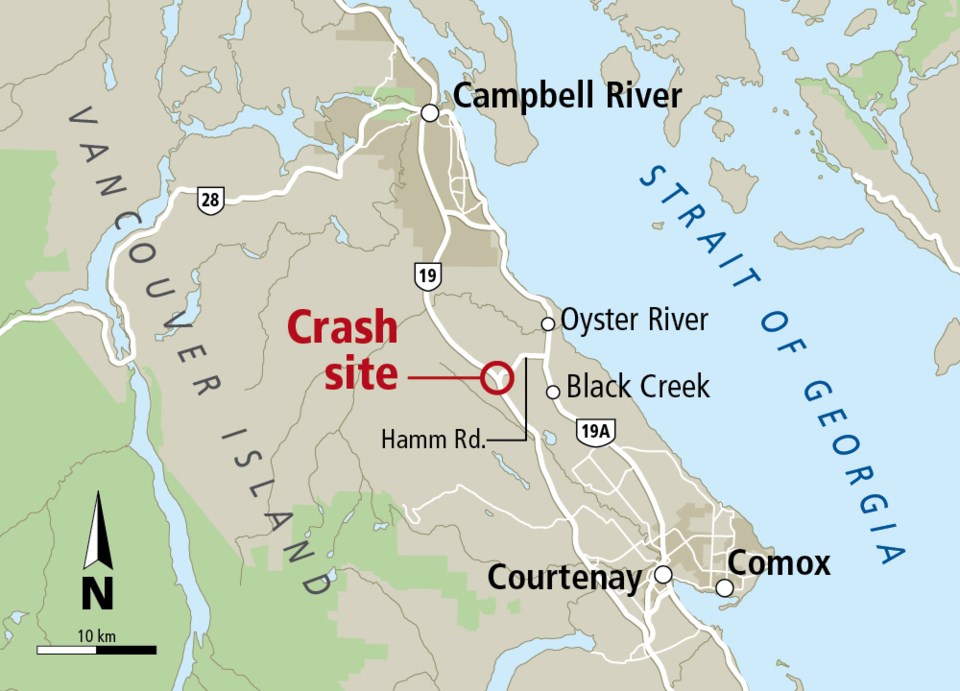A Nanaimo man’s co-workers are grieving after his fuel truck rolled over, killing him and spilling up to 50,000 litres of diesel near Black Creek.
The B.C. Coroners Service identified Vincent Allen Torrant Buchanan, 33, as the driver and sole occupant of the vehicle.
Bridgeway Transport general manager Jeff Salmon said the company is offering support to about 35 employees based in Nanaimo and Chemainus, as well as working with the province to clean up the spill.
“This is a very tragic incident, for all parties concerned. Our hearts go out to the individual’s family,” Salmon said.
“It’s had a significant effect on our team here on the Island. We’re doing our best to help people comprehend what’s occurred and help them through the grieving process.”
Members of the North Vancouver Island Traffic Services and Comox Valley RCMP responded to a report of a single-vehicle crash just after 7 a.m. Monday.
A B-Train, which is a truck consisting of two trailers linked together by a fifth wheel, was northbound on the Island Highway near Hamm Road, about halfway between Courtenay and Campbell River.
It had just entered an area where the speed limit is 90 kilometres an hour.
“The vehicle was in that zone and went off [the] road, hitting a large sign post, and rolled into the ditch,” said Sgt. Craig Blanchard, unit commander for the North Vancouver Island Traffic Service.
Buchanan was pronounced dead at the scene.
The crash is under investigation, but there’s no indication that speed or alcohol were factors, Blanchard said.
Firefighters from the Oyster River Fire Department used extraction equipment to remove Buchanan from the vehicle and undertook initial spill containment.
Fire Chief Bruce Green said firefighters contained the spill to within 300 to 400 yards of the truck.
The Ministry of Environment is monitoring the cleanup, in partnership with Island Health, Transport Canada and the Transportation Ministry.
The trucking company has retained environmental services provider Quantum Murray to offload the remaining fuel in the truck and clean the site.
EcoFish Research will conduct an environmental impact assessment and hire a hydrologist to determine impacts on groundwater and surrounding watersheds.
Diesel spills are significantly more difficult to clean up than gasoline spills, said Dave Rogers, founder of hazard-materials company B.C. Hazmat, which is not involved in the cleanup.
Diesel evaporates at a much slower rate than gasoline. And while it will float on water, it sinks into the ground, he said.
“If it stays on the surface, in a puddle, it will evaporate quickly. But once it’s in the dirt, it doesn’t evaporate,” Rogers said.
“You’re not going to wait, you’re going to start digging it up and stop it from moving. … There will be some environmental damage.”
Early reports that the spill involved biodiesel were incorrect.



